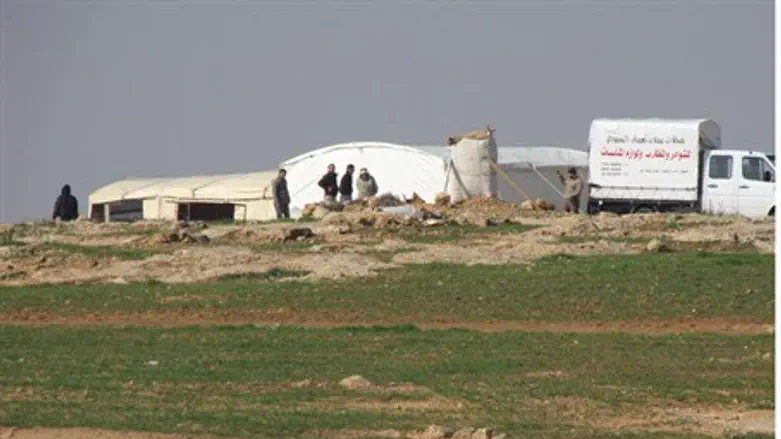
The Supreme Court on Monday denied the petition of Arab squatters who were seeking to block a demolition order against their illegal buildings in Arab Susya, located in the Har Hevron region of southern Judea, and significantly situated on the site of the ancient Jewish village Susya.
The Arab residents had requested not to demolish 80 illegal buildings in the village until the end of a court discussion on whether or not to retroactively legalize the construction, reports Walla!.
Supreme Court Judge Noam Solberg struck down the request, noting that there are illegal construction irregularities warranting an enforcement of the building laws.
The radical leftist organization Rabbis for Human Rights, which is aiding the Arab petitioners, said, "this is an unusual decision that will cause the destruction of the village before the discussion on its legalization concludes."
Arab Susya was built adjacent to the Jewish community of Susya that was established in 1983. Problematically, the Arab town was built on the archaeological site of ancient Susya, a Jewish village from the Temple Period.
While Arab squatters and leftists have claimed an Arab historical connection to the site, historical documents have thoroughly debunked that claim, showing how the Arab village is a very recent phenomenon whereas the ancient Jewish connection to the site is established in the records.
Tzviki Bar-Hai, then head of the Har Hevron regional council, told Arutz Sheva in late 2013 that the Arab presence in Susya is very recent.
"I was there in 1976, and aside from the synagogue that was built here in 1969, there wasn’t a living soul," he recalled. “We were able to restart the archaeological digs in 1983, and then, too, there were no Palestinians around.”
He noted how Arab farmers began to visit Susya for one or two nights at a time during certain parts of the year starting in 1986, revealing that those now claiming to be residents of Susya are actually from the nearby Arab town of Yatta.
"In recent years a few Arab families from Yatta are trying to settle near ancient Susya and to argue that they were expelled from the village of Susiya – which never existed," he said. "They are all from Yatta. They are supported by leftist activists, who come on weekends to help create the narrative of expulsion."